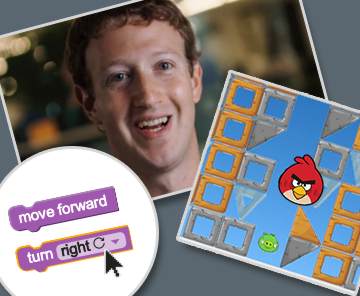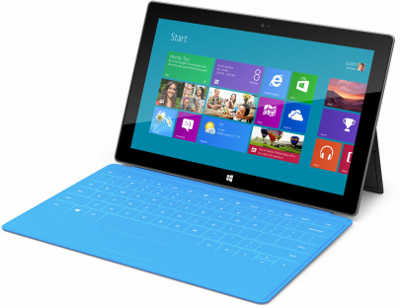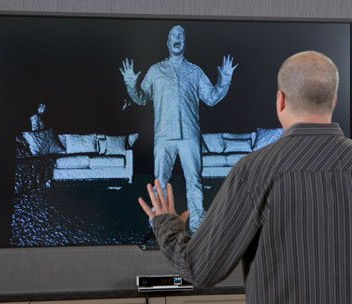| Review Of The Programming Year 2013 |
| Written by I Programmer | ||||
| Tuesday, 31 December 2013 | ||||
Page 1 of 3 What to make of 2013? What do you remember most? How did things change - for the better or for the worse? What trends are revealed by an analysis of last years news? One subject that we have mostly steered clear of during the year is the revelation that we are all being digitally spied on. The reason we have ignored this widely covered topic is simply that there are very few hard facts about how the software side of the operation worked. It still seems unlikely that any crypto systems have been fundamentally compromised. The attacks all seem to be based on covert modification of systems to make them less effective. So while it all might be a revelation at a social and political level - no new tech here. One big thing that has changed is the level of awareness and emphasis on security which will probably continue into next year. The Year Of Code
One of the big features of the year was the growing cry for bringing coding to the masses which culminated in a full bodied shout with the hour of code. You could say that 2013 was the Year of Code. If you are a programmer then your only surprise might be that programming ever fell off the curriculum bandwagon - it is so obviously a thinking skill worth teaching to everyone. However, there was an inevitable backlash from non-programmers who thought that it was a mechanical skill something like typing and from programmers who really didn't appreciate that what they were doing was so much more than "writing code". What was a surprise was the level of enthusiasm for the Hour of Code and for Computer Science Education Week. Let's hope that the effort doesn't stall in 2014.
Microsoft And The Decline Of Windows
Microsoft was also in the news and often for the wrong reasons. Windows 8 morphed into 8.1, but despite some growth it is still clear that none of Window 8/RT or Phone have made much of an impression on the consumers and to a large extent on us programmers. Of course as the year ends Microsoft is still looking for a replacement CEO as Steve Ballmer finally gave up the position with an announcement in August, supposedly because of the huge loss made on the range of Surface Windows RT devices. Microsoft's venture into hardware is looking increasingly ill-judged as the Windows RT devices gain enthusiasts but no real mass market following. The same could be said for Windows Phone 8 and at the end of the year Microsoft basically had to buy Nokia to keep it afloat as viable alternative. By taking over hardware production it succeeded in alienating the manufacturers that traditionally built the hardware that ran Windows. A little later in the year the information was let out of the bag that Microsoft was once again working to unify its operating systems into one for all platforms. It looks as though the first casually might well be Windows RT as Windows 8 takes the big form factor machines and Windows Phone takes the smaller devices. Turning towards 2014 my guess is that every Windows, Desktop PC user is hoping that the future will be different when a new hand takes the controls. Somehow it seems unlikely. Microsoft isn't so much a huge oil tanker that takes miles to alter direction. Currently it is more like a huge oil tanker adrift without a rudder. Getting it moving not only involves finding a direction, but getting the machinery to work.
The Decline Of The PC
Of course one of the big reasons that Windows is seeing a decline is nothing at all to do with Microsoft. At most, Microsoft can be said to be doing noting useful to slow down the decline in the PC market. The simple fact is that many of the tasks that used to need a desktop PC or a laptop no longer do. Tablets are cheap, portable and easy to use. PCs are expensive, not as portable and .... essential for some tasks. You can argue all you like that you can do anything on your tablet, but the PC has one big advantage - the keyboard. Yes, if anything saves the PC it will be Qwerty not Windows 8. 2013 saw the rapid decline of the sales of new PCs as tablet computing took off in a big way. However, the PC's situation was made worse by the simple fact that the progression of hardware had largely stagnated. If you had a working PC on your desktop or lap then hardware improvements over the last two or three years were so slight as to provide little to no incentive to upgrade. This is a new phenomenon that brings the longstanding need to upgrade cycle to an end. You can also argue that the doubt, fear and uncertainty induced by Microsoft's radical change to desktop Windows is another brake on anyone considering the upgrade to new hardware. Better to stick to what you have and see what happens. Will the PC recover some in 2014? Not back to its old levels, but if Microsoft makes a desktop operating system that makes people want to upgrade then very probably.
Playing Games And Kinect 2
Is this the year that the game market lost its way? Yes, we had the launch of the PS4 and the XBox One but increasingly the independent programmer is threatened with a lockout. Sony played the surprising role of the white knight and allowed programmers to develop for the PS4 so forcing Microsoft to backtrack and offer independent programmers a chance. However, Microsoft killed XNA which was about the only way that a casual programmer could get to grips with the Xbox. This was bad for computer education - how can you get beginners started via the full DirectX based SDK? It was also bad for independent games programmers. Microsoft is still promising a new system that makes it possible for weekend programmers to produce code that runs on the new Xbox, but it will most likely be based on a fairly raw exposure to DirectX, which isn't beginner friendly. What is really puzzling is - Microsoft had a system that would do the job and killed it. The new Xbox also had a new Kinect. Microsoft say that this will be available for the PC in 2014 and this might see it put to some interesting uses. It is based on a time of flght sensor, which provides much more resolution than the old Kinect, and hence might restart the amazing burst of creativity the initial months of the first Kinect created. In the meantime it is also worth noticing that Apple managed to acquire PrimeSense - the company responsible for the first Kinect.
|
||||
| Last Updated ( Wednesday, 01 January 2014 ) |



